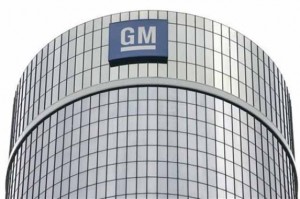
GM asked a Texas judge to dismiss a lawsuit involving its faulty ignition due to fabricated evidence.
General Motors Co. asked a Texas judge to dismiss a lawsuit about a fatal 2011 crash, which has been linked to the faulty ignition switch that already has cost the company more than $2 billion, because of fabricated evidence.
In its motion asking for a dismissal, GM accused the plaintiffs and their lawyers of fabricating evidence about the vehicle’s key during the ongoing trial. Plaintiffs Zachary Stevens, his parents and their lawyers showed jurors in Harris County court a key attached to a chain containing several other items, claiming it was the one used to drive the 2007 Saturn Sky involved in the crash.
GM, however, said the key displayed in the courtroom did not in fact belong to that vehicle. The carmaker, which recalled 2.6 million vehicles in 2014 for defective ignition switches, has warned owners that added weight to key chains can cause the switches to slip out of position.
Stevens said ignition-switch rotation caused him to lose control of the Sky, hitting another vehicle and killing that driver. His 2015 lawsuit is the first to go to trial among roughly 20 pending in Texas state courts. A manslaughter charge initially brought against Stevens was dropped following GM’s recall announcement.
GM’s motion said Stevens initially said he was driving with just a few items attached to his key. But the key chain shown to jurors comprised three rings holding additional items like a souvenir Eiffel Tower and gym membership card.
Lawyers for Stevens have yet to respond to GM’s motion and the allegations.
GM CEO Mary Barra said in a video deposition played in the Houston courtroom that GM engineers “misdiagnosed (the ignition defect) as a customer satisfaction issue and not a safety issue.”
(GM gambles on reversal of appeals court ruling. For more, Click Here.)
GM won the first two ignition cases that went to trial earlier this year. In one case a federal jury in New York blamed a New Orleans crash on a freak ice storm, rather than a faulty ignition switch. In January, a case fell apart after it was discovered that the plaintiff had misrepresented key facts about his financial situation that were critical to the case.
In another case plaintiffs’ lawyers elected to drop what was scheduled to be the fourth in a series of six test trials over the defect, according to a website that track major lawsuits and developments on legal issue.
Despite the court victories, GM could potentially more lawsuits if an appeals court ruling opening the door to plaintiffs harmed before the company filed for bankruptcy in 2009. GM maintains the cases were nullified by the bankruptcy. But the appeals court has disagreed.
GM has spent more than $2 billion, according to various filings with the Securities Exchange Commission, to pay government imposed fines, lawyer fees and individual settlements since the scandal broke into public view more than two years ago and has earned the company sharp rebukes from the U.S. Department of Transportation and Congressional committees.
(“New” GM scores a minor victory in court. Click Here for the story.)
The ignition switch can slip out of place, causing the engine to stall and cutting power to the brakes, steering and airbag systems. GM has admitted some employees knew about the problems for years.
The ignition-switch defect has been linked to at least 124 deaths and GM chief executive officer Mary Barra has described the ignition-switch as a serious blow to the company reputation.
As part of the resolution of the ignition-switch defect GM scandal, GM was forced to set up a settlement process that allowed hundreds of claimants to resolve their claims out of court. GM hired Kenneth Feinberg to administer the claims process for the $600 million fund.
Barra also has used the scandal, which has led to the dismissal of 14 GM employees, to push through a re-organization of GM’s engineering organization and sweeping changes in the company’s protocols for handling recall and safety-related issues.
In addition, 14 GM employees were dismissed after an independent investigation indicated the problem had been ignored and then covered up by GM personnel.
(To why GM’s legal problems continue to grow, Click Here.)
The ignition-switch scandal, while it put enormous pressure on GM and has been enormously expensive, has been eclipsed in recent months by the scandal surrounding Takata air bags and the even more expensive Volkswagen emission-cheating scandal.
